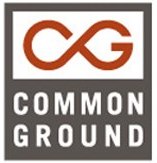Council Delays Housing Authority Crackdown To January 1
CITY HALL
Council Delays Housing Authority Crackdown To January 1
Delay due to uncertainty how many building inspectors will be needed.
By Jeramey Jannene - 10/10/2023 Urban Milwaukee
Photo by Jeramey Jannene
The Common Council’s proposal to send city inspectors into Housing Authority properties will have to wait until at least 2024. But council members vow it is coming, and drew applause Tuesday for moving the proposal forward.
Their concern is that the number of inspections required would overwhelm the capacity of the Department of Neighborhood Services (DNS) and reduce service quality for other nuisance and safety inspections.
“I don’t think that does anyone any good when you play one community off of the other,” said Alderman Michael Murphy at Tuesday’s council meeting.
Earlier this year, Common Ground Southeastern Wisconsin launched a campaign on behalf of residents that seeks substantial changes to alleged failures of the city-affiliated Housing Authority of the City of Milwaukee (HACM). One of the key concerns is the physical condition of the properties.
The council held a multi-hour hearing on Sept. 26 to explore options for improvement and to hear resident concerns about mold, flooding, rats, bugs and HACM’s alleged failure to properly repair or treat the issues. DNS Commissioner Erica Roberts told the council at the meeting that her department did not have a clear understanding of how many inspections, and reinspections, would be necessary based on limited HACM information.
A longstanding practice, called “ambiguous” by Council President José G. Pérez, has DNS forward complaints to HACM instead of starting the inspection and enforcement process.
The council, in a proposal unanimously adopted Tuesday, is ending that practice and giving DNS the explicit authority to inspect properties and issue code violations. After the vote, Common Ground members in the gallery erupted into applause.
But Murphy, in an amendment, proposed to delay the start of such enforcement until Jan. 1.
“The reason is we’re in the middle of a budget debate right now and this will take additional positions. And the question is where will those positions come from and how will they be paid,” said the alderman. “I think there will be a resolution.”
Murphy said he expected long-term that the cost of the inspectors would be covered by HACM through inspection fees. Property owners subject to inspections pay fees depending on the type, severity and frequency of the inspection.
Ald. Mark Chambers, Jr. said he was concerned that even the Jan. 1. start date wasn’t practical given the need to hire more inspectors. “I just want to be realistic,” he said.
“I think there will be a transition,” said Murphy.
His amendment was unanimously adopted, as was one from Alderwoman Milele A. Coggs that added an annual reporting requirement for DNS on the matter.
HACM supported the inspection proposal during the September hearing, but Common Ground members were critical of the agency’s claims that it was responding to many complaints within just a couple days and that conditions were improving.
“We are committed to providing quality affordable housing for our residents,” said HACM executive secretary Willie Hines, Jr. “HACM acknowledges we have had serious issues in practices and procedures in serving our residents.”
“HACM has systematically mismanaged their buildings for years, just like their finances, and COVID is no excuse,” said Alexander Hardy, a Common Ground board member, at the hearing. “At best, HACM did not know about the issues despite having managers at each property and is now doing shoddy repair work… at worst, they knew and neglected residents.”
Potential issues remain even if the inspectors enter properties and issue orders. The traditional enforcement process involves reinspections and litigation in municipal court for noncompliance. The city can pursue property tax foreclosure for nonpayment.
The city also has limited direct oversight of the agency. The mayor and council appoint and confirm the board members, but beyond that, they have little authority to direct the agency. Much of the regulation of the agency is controlled by the U.S. Department of Housing and Urban Development, which also provides much of its funding.
HACM provides housing to approximately 5,000 households in its own properties and, with federal vouchers, houses an additional 6,000 households in privately-owned properties.
Common Ground, a broad-based coalition that boasts 40,000 citizen members, said in March it has interviewed or collected information from more than 1,200 HACM residents, spanning 17 properties, since 2020.
Related Legislation: File 230571
More about the Common Ground Housing Authority Campaign
City Hall: Council Delays Housing Authority Crackdown To January 1 - Jeramey Jannene - Oct 10th, 2023
Council, Residents Seek Solutions For Housing Authority Woes - Jeramey Jannene - Sep 26th, 2023
Common Ground Expands Campaign Against City Housing Authority - Jeramey Jannene - Aug 29th, 2023
Housing Authority Residents Demand Investigation - PrincessSafiya Byers - Apr 28th, 2023
Common Ground Bashes City’s Housing Authority - Jeramey Jannene - Mar 29th, 2023
Read more about Common Ground Housing Authority Campaign here

